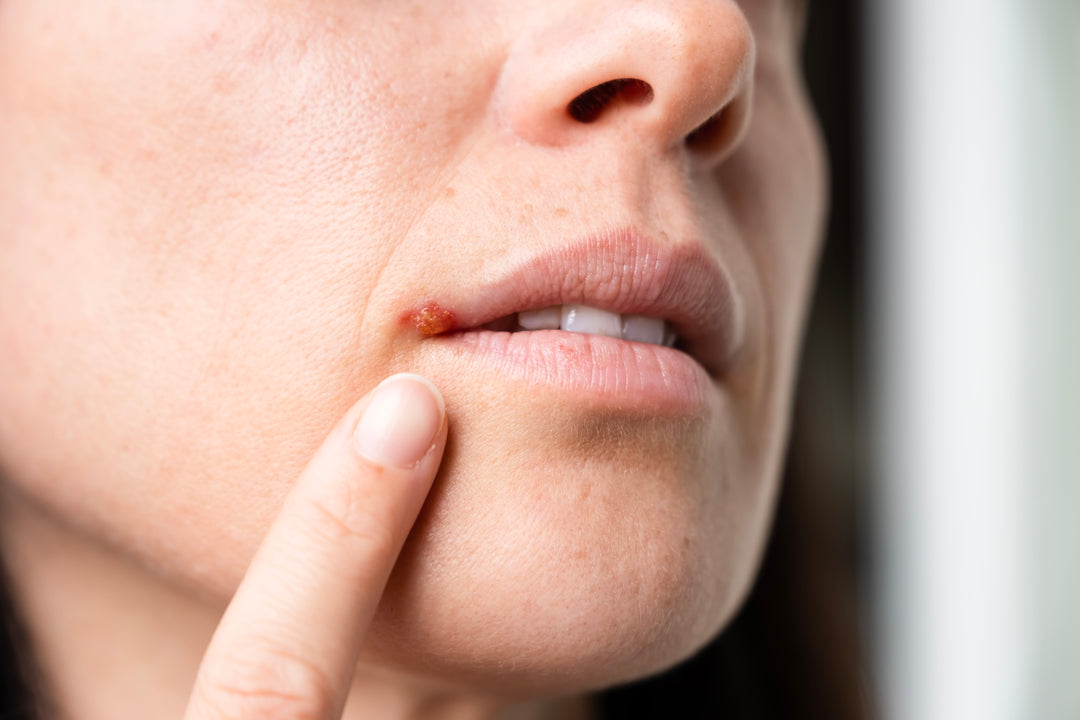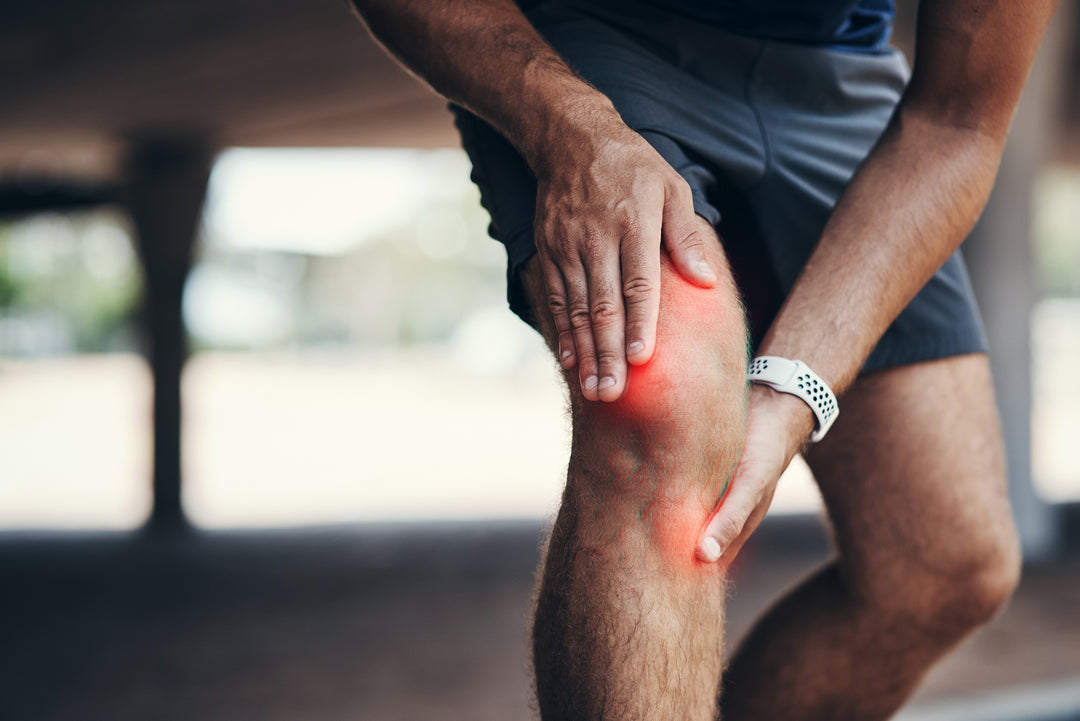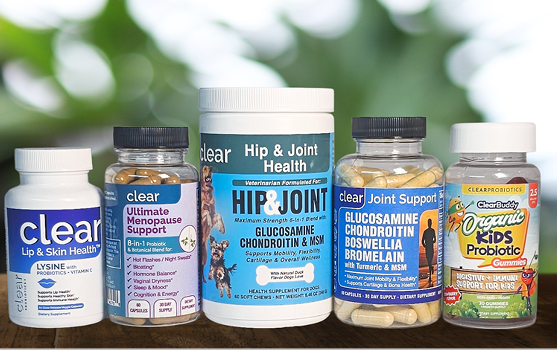What Natural Supplements Can Help With Anxiety?
With so many food supplements out there, you may be wondering what natural supplements can help with anxiety. Some herbs and vitamins that have been shown to help reduce anxiety levels include chamomile, lavender, magnesium, Omega-3 fatty acids, probiotics, and vitamin B.
Making lifestyle changes such as getting more exercise and practicing stress-relieving techniques like meditation can also be helpful in managing your mental health.
If you need help relaxing and destressing, then this article is for you. Let's discuss what natural supplements can help with anxiety so you can feel calmer and more focused on the task at hand.
Table of Contents
When it comes to finding ways to cope with anxiety, people are often willing to try anything that might help. So it's no surprise that many people turn to natural supplements in hopes of finding relief.
But the truth is, there is no magic pill that can completely eliminate anxiety. And while there are some supplements that may help reduce anxiety symptoms, it's important to remember that they are not a cure.
If you're considering taking a natural supplement for anxiety, it's important to do your research and talk to your doctor first. This is especially true if you're taking any other medications, as some supplements can interact with them.
What Natural Supplements Can Help With Anxiety?
Anxiety is a normal emotion that everyone experiences from time to time. It's a feeling of uneasiness, worry, or fear.
It can be mild or severe. Everyone has different triggers for anxiety.
For some people, it may be a specific situation, such as public speaking or taking a test. For others, it may be more general such as feeling overwhelmed by life's demands.
Natural supplements can help with anxiety by reducing stress and promoting relaxation. There are many different supplements that can be helpful, and it's important to talk to your doctor before taking any.
What natural supplements can help with anxiety?
- Valerian root: This herb has been used for centuries to promote sleep and relaxation. It's thought to work by increasing levels of gamma-aminobutyric acid (GABA) in the brain. GABA is a neurotransmitter that helps promote relaxation and calmness.
- Lemon balm: This herb is thought to work in a similar way to valerian root, by increasing levels of GABA in the brain.
- Passionflower: This herb is often used to treat anxiety and insomnia. It's thought to work by increasing levels of serotonin which helps regulate mood.
- Chamomile extracts: This herb has long been used as a relaxant. It's thought to work by increasing levels of a neurotransmitter called glycine which helps promote relaxation.
- Kava kava: This herb is native to the South Pacific Islands and has been used for centuries to treat anxiety and insomnia. It's thought to work by increasing levels of dopamine which helps regulate mood and pleasure.
If you're considering taking any natural supplements for anxiety, it's important to talk to your doctor first. Some supplements can interact with medications you're already taking. Others may not be safe for people with certain medical conditions.
Benefits of Taking Natural Supplements for Anxiety
Your mood is largely determined by the chemicals that are flowing through your brain. These chemicals are called neurotransmitters and they act as messengers between neurons. When they’re out of balance, it can lead to problems like anxiety.
Fortunately, there are a number of natural supplements that can help to rebalance your neurotransmitters and reduce anxiety.
What natural supplements can help with anxiety?
1. Probiotics
Probiotics are live bacteria that are found in fermented foods and supplements. They’re often called "good" bacteria because of the many health benefits they provide.
Probiotics are known to promote a healthy gut. They can also help to reduce inflammation, which has been linked to anxiety and depression.
2. Omega-3 Fatty Acids
Omega-3 fatty acids are a type of unsaturated fat that’s essential for good health. They’re found in fish oil and certain plant oils.
Omega-3 fatty acids play an important role in brain function. They’re involved in the production of neurotransmitters like serotonin and dopamine, which are known to regulate mood.
Studies have shown that Omega-3 fatty acids can help to reduce symptoms of anxiety and depression. They may also help to improve cognitive function in people with these conditions.
3. Magnesium
Magnesium is a mineral that’s found in many foods, including leafy green vegetables, nuts, and seeds. It’s also available in supplement form.
Magnesium is involved in many biochemical reactions in the body, including the production of neurotransmitters. It’s also known to have calming and anxiety-reducing effects.
 (Source)
(Source)
4. Tryptophan
Tryptophan is an amino acid that’s found in many foods, including poultry, fish, eggs, and dairy products. It’s also available in supplement form.
Tryptophan is a precursor to the neurotransmitter serotonin which is known to regulate mood and have calming and anxiety-reducing effects.
5. Herbs
There are many herbs that have been traditionally used to reduce anxiety and promote relaxation. These include lavender, chamomile, and passionflower.
If you’re looking for a natural way to reduce anxiety, consider trying one or more of these supplements. Speak to your doctor first to make sure they’re safe for you.
How to Choose the Right Supplement for Your Anxiety Symptoms
If you're struggling with anxiety, you're not alone. In fact, anxiety disorders are the most common mental illness in the United States, affecting 40 million adults.
That's a lot of people!
With so many people affected by anxiety, it's no wonder there are so many different treatments out there.
One of the most popular treatment options is using natural supplements to help ease anxiety symptoms. But with so many different supplements on the market, it can be hard to know what natural supplements can help with anxiety.
Here are a few tips to help you choose the right supplement for your anxiety symptoms.
1. Choose scientifically formulated supplements
Choose supplements that contain clinically proven ingredients and are tested and sourced with great care. Always check that the products are manufactured in FDA-inspected facilities and meet the standard of cGMP (certified Good Manufacturing Practices).
2. Talk to Your Doctor
If you're thinking about taking a supplement for your anxiety, it's always a good idea to talk to your doctor first.
They can help you understand the potential risks and benefits of different supplements and make sure that the supplement you choose is safe for you to take.
3. Read the Label
If you're looking at what natural supplements can help with anxiety, it's important to read the label carefully. Make sure to look for supplements that contain ingredients that have been proven to be effective for anxiety.
4. Start with a Low Dose
When you're first starting out, it's always a good idea to start with a low dose of the supplement. You can then increase the dose gradually over time if needed.
5. Be Patient
It can take a few weeks or even longer for a supplement to start working. So, it's important to be patient and give the supplement time to work.
6. Pay Attention to Your Body
Finally, it's important to pay attention to your body and how it responds to the supplement. If you're feeling more anxious or you're having any negative side effects, stop taking the supplement and talk to your doctor.
With a little trial and error, you should be able to find a supplement that works for you.
Making Lifestyle Changes to Manage Stress and Promote Relaxation
Stress can take a toll on your mind and body. But there's good news - making lifestyle changes can help reduce stress and promote relaxation.
One of the best ways to manage stress is to exercise regularly. Exercise releases endorphins, which have mood-boosting effects. It can also help you sleep better, which can reduce stress levels.
Eating a healthy diet is also important for managing stress. Eating foods that are high in antioxidants can help reduce inflammation, which can lead to stress.
And, of course, getting enough rest is crucial for managing stress.
There are also some supplements that can help with stress. For example, omega-3 fatty acids have been shown to help reduce anxiety. Probiotics and magnesium are also thought to be helpful for stress.
Making lifestyle changes to reduce stress can be difficult. But it's worth it because stress can have a serious impact on your health. It could make a big difference.
Conclusion
While herbal supplement companies are required to follow certain guidelines, such as labeling their product with a list of ingredients, they are not regulated by the FDA with the same standards for medication. Just because something is labeled "natural" doesn't mean it's necessarily safe to use.
If you're thinking about taking an herb to treat your anxiety disorder, make sure you talk to a doctor about it. Some herbs can interact with prescription drugs and cause serious complications.
Some herbal remedies for anxiety and stress can make you feel drowsy, so you may want to be careful when taking these while driving or doing any risky activities. Always talk to your doctor before taking any herbs or dietary supplements.
If your feelings of anxiety and panic are affecting your daily life, talk to your doctor. If these feelings are severe, they may need medical attention.
Talk to your doctor about what natural supplements can help with anxiety. And make sure to follow the directions on the label.








